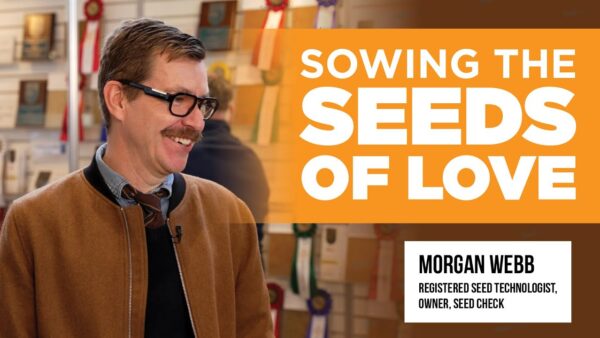Garth Hodges, vice president of BASF’s North American seed business, says one of his drivers is a need for continued innovation in seed. Named one of the Canadian seed sector’s most influential people back in 2018, Hodges answers our questions from his current home base in Raleigh, North Carolina.
Seed World (SW): What’s the best piece of advice you’ve received during your career?
Garth Hodges (GH): Twenty years ago, I had a manager named John Westridge. John taught me a very valuable lesson — at the time I thought it was the worst piece of advice, ever. “If you chase two rabbits, you won’t catch either of them.” I always thought if I can give John this long list of things, I can be really impressive. He kept saying relentlessly, “What’s the most important one? What’s the one piece that’s really important, and what have you done about it?” I think we as an industry have to choose where it is we want to focus. What’s the legacy that we as leaders are going to leave to the next generation? How can we create an environment that’s exciting for the next generation?
SW: Tell us about what you’re doing with hybrid wheat.
GH: We’ve been investing a lot in germplasm and trying to understand breeding different hybridization systems. We’re actually now going out to the field tomorrow to have a look at some of our seed production — seed production has always been a big challenge in hybrid wheat.
SW: What excites you most about the seed industry?
GH: We’re living in a world where we’re making something, such as food or fuel or fibre. In addition, I think of innovation. When I started in 2002, it was a big deal for us to sequence the canola genome. But now that technology is routine, the leaps and bounds in innovation are amazing.
SW: Talk to us about some challenges in the industry.
GH: Canada is a large export country. Canada is really so dependent on its export markets that it’s almost as if the export markets are dictating what kind of technologies and innovations you can use. That’s problematic. Now, there are also macro challenges. We are so fragmented as an industry, but yet the challenge of societal and environmental acceptance is actually quite consolidated and unique. The question is how can we consolidate some of that? Another challenge I see are the societal challenges to the use of innovation. Think about the Green Deal in Europe. I really think that that’s something that the industry needs to think about.











